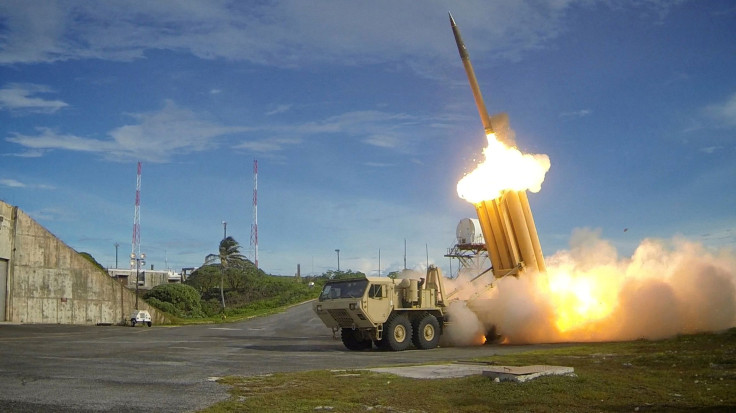What Will North Korea Do Next? THAAD Anti-Missile System In South Korea May Begin Operations By April Following Kim Jong Un's Latest Missile Launches

The United States has kicked off the deployment of its missile defense system at the Osan Air Base in South Korea with the first pieces arriving in the country late Monday, the US military said. The Terminal High Altitude Area Defense (THAAD) system will be stationed in the Asian country to counter the nuclear threat posed by neighboring North Korea.
Kim Jong Un’s North Korea test-fired four ballistic missiles into the East Sea on Monday, a major cause of concern for countries in the region, as well as the U.S. Adm.
Harry Harris of the U.S. Pacific Command said in a statement: “Continued provocative actions by North Korea, including Monday's launch of multiple missiles, only confirm the prudence of our alliance decision last year to deploy THAAD to South Korea.”
The deployment of the anti-missile defense system is expected to be completed within two months, with THAAD becoming operational even as early as April this year, South Korea’s Yonhap News Agency reported the country’s military officials saying.
Seoul’s defense spokesman Moon Sang-gyun reportedly said a C-17 Globemaster III transport aircraft delivered the first elements of the defense system. The full battery consists of six truck-mounted launchers, 48 interceptors, a fire control and communications unit, and a AN/TPY-2 radar, which will be stationed at Seongju, 180 miles south of Seoul.
The THAAD deployment was first announced in July last year, but drew condemnation from regional power China, which likened the situation to the Cuban missile crisis. Many within South Korea also voiced their concerns about the placement of the anti-missile system over fear that the area would become the target of nuclear attacks by Pyongyang.
However, with North Korea stepping up its nuclear efforts, South Korea’s acting president and Prime Minister Hwang Kyo-ahn called for immediate deployment to deter the north’s threat.
© Copyright IBTimes 2024. All rights reserved.












